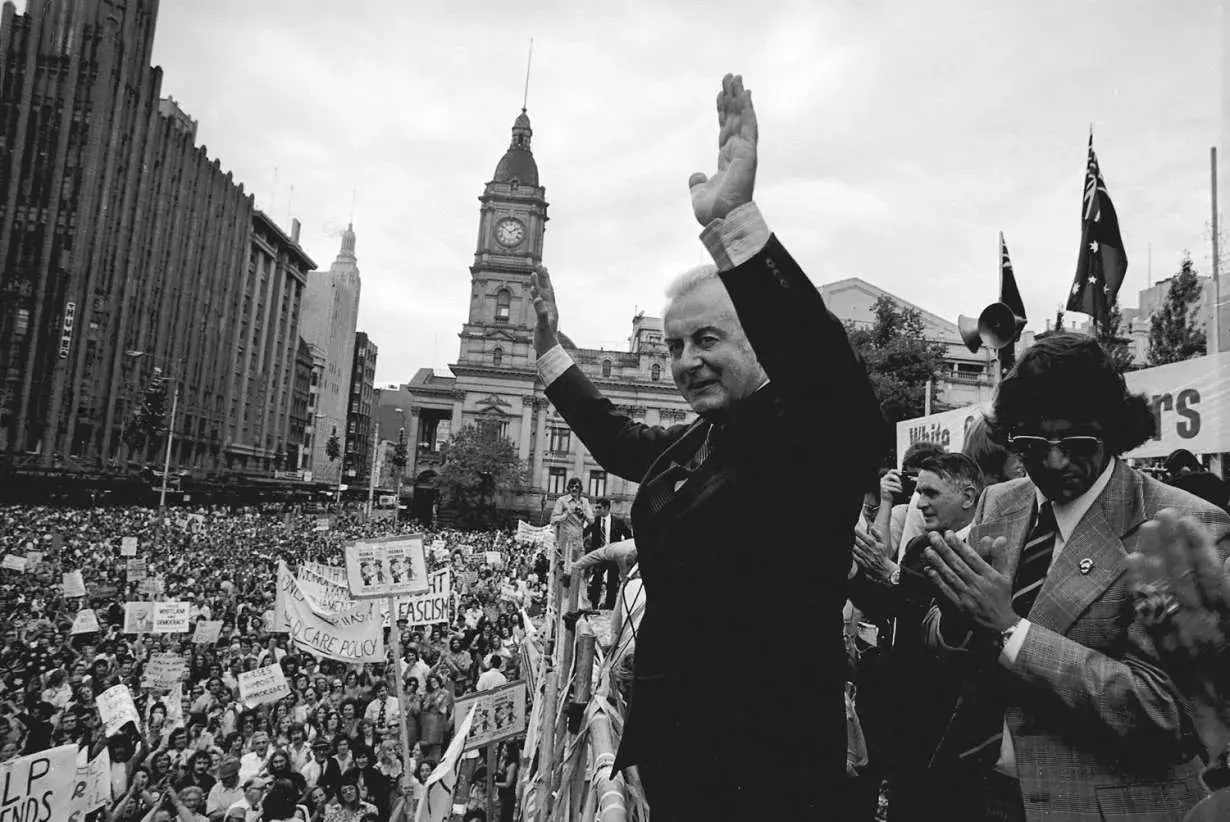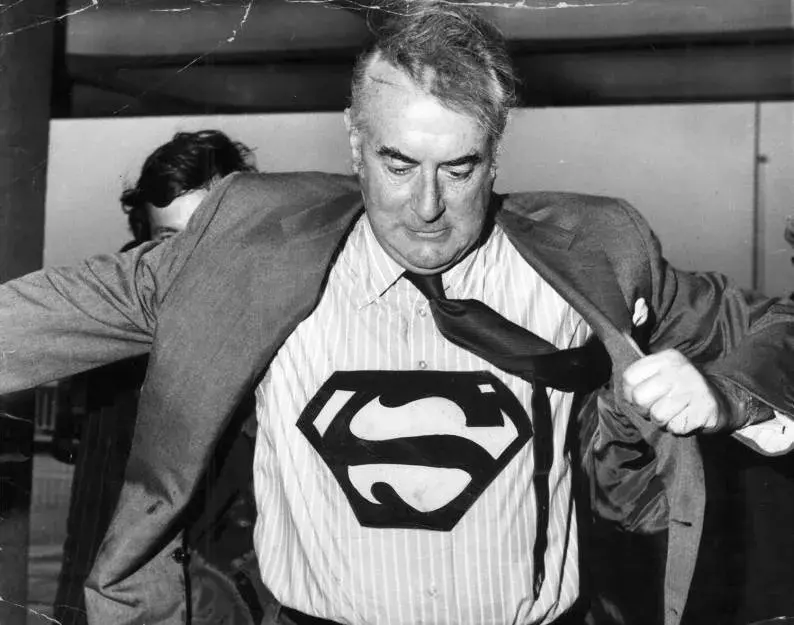GOUGH WHITLAM
Companion of the Order of Australia (1978)
Gough Whitlam became Australia's 21st prime minister when the Labor Party won office, replacing the Liberal-Country Coalition government led by Billy McMahon.
11 July 1916
Melbourne Victoria
21 October 2014
Sydney, New South Wales
Margaret Whitlam
Australian Labor Party
Photo: Fairfax
About
Gough Whitlam considered it his 'destiny' to lead the Labor Party, and the country. He came to office with a detailed reform agenda known as ‘the Program’ and the resolve to implement it. During his rollercoaster years as prime minister, Whitlam established social policies which endured long beyond his government and achieved significant reform of his party organisation.

Photo: Fairfax
Whitlam was educated at Knox Grammar and, later, Canberra public and private schools. He studied classics at Sydney University in 1935 and reportedly reorganised the college library. In 1941 he enlisted in the Air Force, reaching the rank of flight lieutenant, and became interested in the post-war reconstruction policies of the Curtin government. Whitlam completed his legal studies and was admitted to the Bar in 1947.
After standing unsuccessfully in council and state politics, Whitlam was elected in a by-election for the federal seat of Werriwa in 1952. Whitlam became deputy leader to Arthur Calwell in 1960 and clashed on party reform with the executive who he labelled as the ‘twelve witless men.’ Whitlam became opposition leader in 1967 and, on 5 December 1972, was sworn in as prime minister after running an innovative election.
Whitlam was dismissed by Governor-General Sir John Kerr on 11 November 1975, who appointed Malcolm Fraser as prime minister until an election was called. Whitlam suffered a heavy loss in that election and stayed on as opposition leader. After losing the 1977 election he resigned on 31 July 1978. The Whitlam government is remembered as a period of significant reform which responded to the needs of a changing Australia, but was also characterised by political and economic uncertainty.
MILESTONES
Recognition of China
The Australian government recognises the People’s Republic of China on 21 December 1972. Whitlam had proposed this as early as 1954, and in 1971 travelled to China as leader of the opposition.
Voting age lowered from 21 to 18
The Commonwealth Electoral Act is amended to lower the voting age from 21 to 18 on 28 February 1973. This was influenced by the fact that Australians had been eligible for conscription at the age of 20 yet not considered mature enough to vote at the same age.
Australian Legal Aid Office
On 25 July 1973 the government announces its intention to establish an Australian Legal Aid Office. The service is to provide free legal advice on Federal law to any Australian who requires it.
Death Penalty Abolition Act
The Death Penalty Abolition Act to end capital punishment in Australia is passed on 18 September 1973.
Abolition of university fees
On 1 January 1974 the government abolishes university and technical college tuition fees and shortly after increased Commonwealth funding for universities to improve access.
ACT and the Northern Territory represented in the Senate
The Commonwealth Electoral Act is amended on 5 August 1974 to introduce Senate representation for the Australian Capital Territory and the Northern Territory.
Racial Discrimination Act
After the 1966 International Convention on the Elimination of All Forms of Racial Discrimination was ratified by Australia at the UN in September 1975 the Racial Discrimination came into effect on 31 October 1975. It outlaws all forms of racial discrimination in Australia and overrides state and territory laws.
Family Law Act
The Family Law Act introduced on 12 June 1975 establishes no-fault divorce, and stresses equal responsibility between parents to care for their children, the division of property after divorce based on assets and needs, and creates the Family Court of Australia to deal with all related cases.
Medibank scheme
A national health insurance scheme called Medibank is introduced on 1 July 1975. It is designed to offer affordable health care and place pressure on private companies to do the same.
360° VIEW
Parliament
The 1972 election was a landmark victory for the Labor Party and presented an opportunity for Whitlam to bring an end to what he viewed as a long period of policy inertia by previous governments. Whitlam and deputy leader Lance Barnard set to work immediately, sworn in after just three days and operating as a duumvirate ministry that divided every position between them and made 40 decisions within two weeks.
Whitlam’s ambitious policy reform impacted on Indigenous Australians, migrants, women and included the introduction of Medibank, new ACT and Northern Territory Senate seats, a new national anthem, Order of Australia honour, as well as the abolition of university fees, the death penalty and military conscription. Whitlam had a strong commitment to parliament and its conventions and a great ability to use it as his stage.
Often Whitlam’s outstanding rhetorical skills were not matched by equivalent strategic or tactical skills. In 1973 the House of Representatives sat for over 900 hours, the greatest number in half a century. The Liberal opposition continued to block government bills in the Senate and Whitlam requested a double dissolution election. After the election held on 18 May 1974, Whitlam still did not have control in the Senate and so invoked an unused provision of the Constitution to call an historic joint sitting of both Houses to vote on the rejected bills. The bills were passed on 6 August 1974, but the ongoing turmoil in parliament did not abate.

Photo: News Ltd/Newspix

